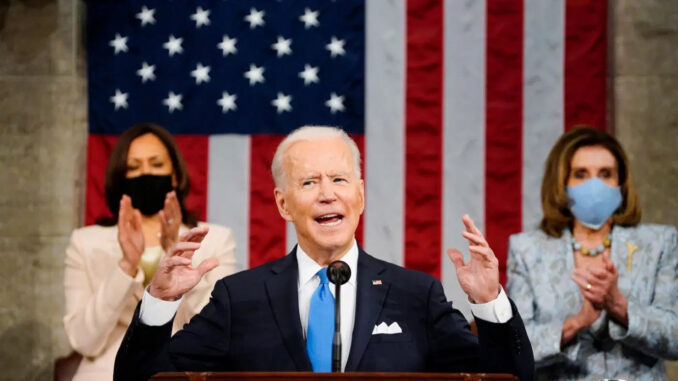
Energy News Beat Publishers Note (ENB): While this article from Daniel Mitchel, Chairman of the Center for Freedom and Prosperity, does not specifically talk about the energy market, the article covers U.S. tax policies impacting all commodities. Consumers will have less disposable income and travel is one of the first oil demand activities is crushed.
President Biden has proposed very large tax increases to finance a bigger burden of government spending. Many of those tax increases will be imposed on corporations, and this will be bad news for the workers, consumers, and shareholders (i.e., the ones who actually foot the bill when politicians raise taxes on businesses).
Biden’s proposal to increase the corporate tax rate has attracted the most criticism, and for good reason. Raising the rate from 21 percent to 28 percent will make American less competitive. Indeed, when state corporate taxes are added to the equation, U.S. businesses will face the highest tax rate in the developed world. And the U.S. corporate tax burden will exceed the Chinese rate as well. Not exactly a recipe for jobs and investment.
To make matters worse, Biden has proposed several tax increases that specifically target American firms that compete in world markets. Most notably, the Administration has proposed to double the tax rate on “global intangible low-tax income” (GILTI) from 10.5 percent to 21 percent.
Translated from tax jargon to English, this is largely a tax on the income American firms earn overseas from intellectual property, most notably patents and royalties. Keep in mind, by the way, that this income already is subject to tax in the nations where it is earned.
Most other nations do not handicap their companies with similar policies, so this means that American firms will face a big competitive disadvantage – especially when fighting for business in low-tax jurisdictions such as Hong Kong, Ireland, Singapore, Switzerland, and most of Eastern Europe.
International tax issues are very complicated, involving not just strange acronyms such as GILTI, but also wonky concepts such as “foreign-derived intangible income” and “qualified business asset income.” So rather than dig into those nearly incomprehensible details, let’s simply look at the bottom-line impact of what Biden is proposing. The Tax Foundation estimates that, “The proposal would impose a 9.4 percent average surtax on the foreign activities of U.S. multinationals above and beyond the taxes levied by foreign governments” and “put U.S. multinationals at a competitive disadvantage relative to foreign corporations.”
We can quantify that disadvantage. The Tax Foundation estimates that the Biden plan will produce a stagging $1.2 trillion tax increase on these companies.
The doubling of the GILTI tax is just one problem. The Biden Administration also wants to force American multinationals to make separate calculations for the income they earn in each nation, known as country-by-country reporting. That is a compliance headache, of course, but the big problem is that this approach means that companies no longer will have the ability to partially protect their earnings by using the high taxes paid in nations such as France to offset the taxes the IRS will impose on income earned in a low-tax nation such as Ireland.
This is not just bad for the competitiveness of American-based companies, it is also bad policy. Good fiscal systems, such as the flat tax, are based on “territorial taxation,” which is the common-sense notion that countries only tax economic activity inside their borders. In other words, the IRS gets to tax income earned in America, the German tax authority gets to tax income in Germany, and the Australian tax authority gets to tax income earned Down Under.
Many other nations follow this approach, which is why they will reap big benefits if Biden’s plan to hamstring American companies is approved. The key thing to understand is that the folks in Washington have the power to raise taxes on American companies competing abroad, but they don’t have the ability to raise taxes on the foreign companies in those overseas markets.
Interestingly, the Biden Administration actually understands that its policies will be very bad news for U.S. companies. Indeed, the White House openly acknowledges that the president “…is also proposing to encourage other countries to adopt strong minimum taxes on corporations, just like the United States, so that foreign corporations aren’t advantaged and foreign countries can’t try to get a competitive edge.”
Needless to say, countries with good tax systems will not have any interest in joining Biden’s global tax cartel. Instead, they will maintain their better tax systems and benefit from an increase in jobs and investment as the United States becomes less competitive.
As a result, the net effect of Biden’s tax increase will be less income for American shareholders, including all the people with IRAs and 401(k)s. And it also will be bad news for American workers since sales from U.S. companies to their overseas subsidiaries represent a big chunk of American exports.
Daniel Mitchell is the chairman of the Center for Freedom and Prosperity.



